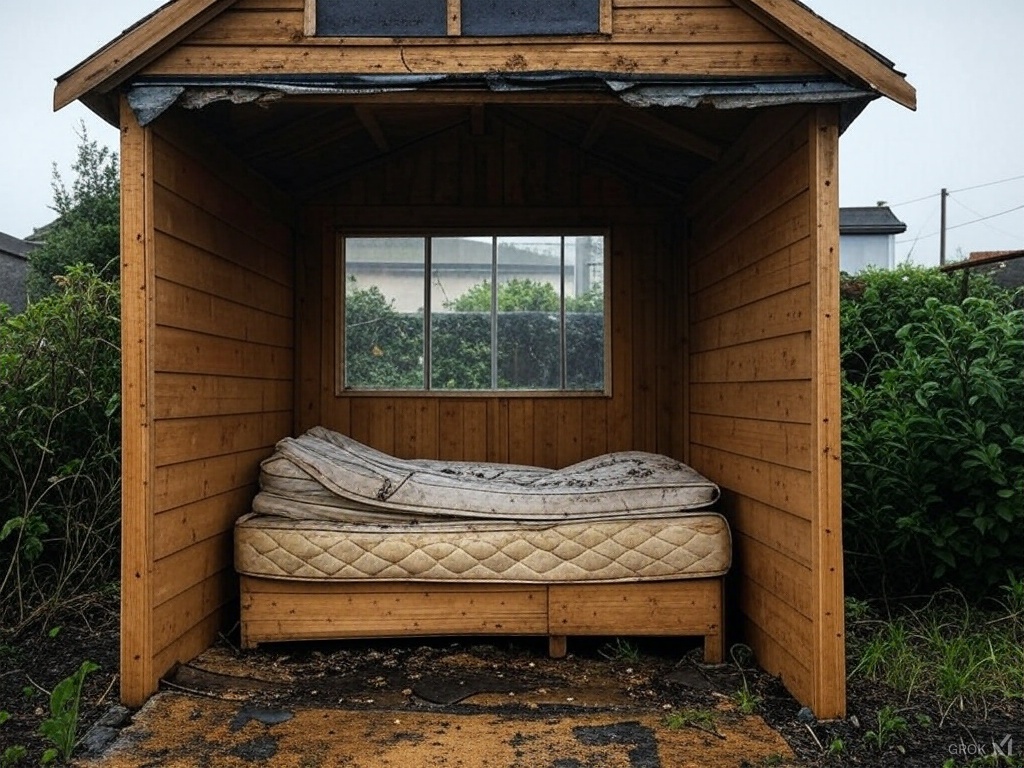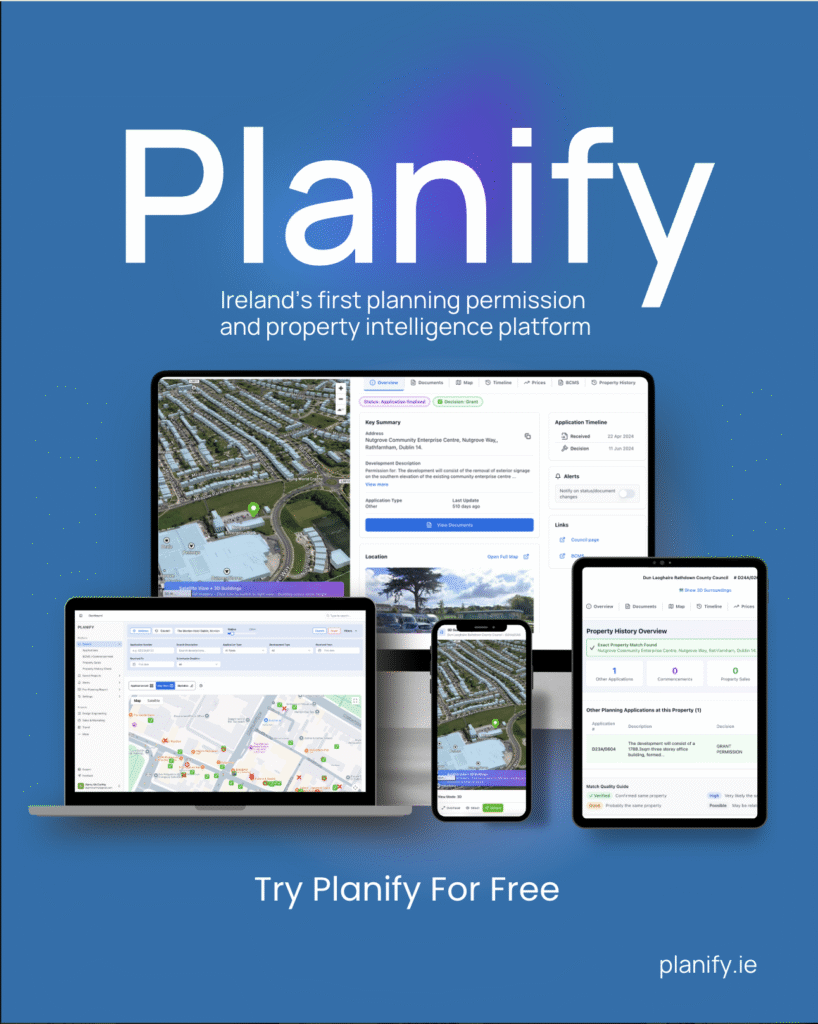The “Bed in the Shed” Proposal.
The Irish government is evaluating a proposal to permit the construction of standalone dwellings, such as “Modular Homes”, “Log Cabins” or “Granny Flats,” up to 40 square meters in size in residential back gardens without the need to obtain planning permission. The proposed initiative recently mooted by Junior Housing Minister John Cummins aims to address housing shortages by facilitating additional living spaces within the grounds of existing properties.
“The minister has made it clear that there needs to be planning exemptions, which enable intergenerational movement between the main dwelling house and the smaller home, which would be situated to the rear of the property,” a government source said.
Current Regulations V Proposed Changes
Under existing regulations, homeowners can build extensions of up to 40 square meters provided it is an extension of and attached to their existing property for habitable purposes without planning permission. Construction of detached buildings up to 25 square meters is also considered an exempted development however such structures may not be used as habitable dwellings, but merely to provide additional storage area, office space etc. As things currently stand any standalone detached development with an intended use of providing “Living Space” requires planning permission from the local authority. The proposed change would extend the exemption to include standalone units up to 40 square meters, allowing homeowners to install modular homes or cabins in their back gardens without seeking planning permission.
Pros:
Increased Housing Supply:
Allowing the construction of standalone dwellings without planning permission could rapidly increase the availability of affordable housing options, providing immediate relief in areas with housing shortages.
Support for Families:
These units can serve as accommodations for elderly family members or young adults seeking independent living spaces close to their families, fostering intergenerational support.
Economic Benefits:
The construction of modular homes is typically faster and more cost-effective than traditional builds, potentially stimulating local economies and providing affordable housing solutions.
Cons:
Construction Standards and Oversight:
Without the planning permission process, ensuring that all standalone dwellings meet building regulations and safety standards could be challenging, potentially leading to substandard living conditions.
Infrastructure Strain:
An increase in dwellings may place additional pressure on existing services and utilities, such as water, sewage, and electricity, especially if necessary connections are not mandated or monitored.
Potential for Exploitation:
There are concerns that property owners might rent out these units at high prices, leading to situations where individuals pay excessive rents for inadequate accommodations. Some critics have described this potential outcome as people being charged “exorbitant rents to live in glorified sheds.”
PPI’s “Shack out the Back” Observations
Minimum Dwelling Size Requirements:
According to the “Sustainable Urban Housing: Design Standards for New Apartments – Guidelines for Planning Authorities” published by the Department of Housing, Planning and Local Government, the minimum floor area for a one-bedroom apartment is 45 square meters. This standard is also commonly applied to one-bedroom houses. The proposed exemption for standalone dwellings of up to 40 square meters would mean these units are smaller than the minimum size currently recommended for apartments and houses, potentially raising concerns about living space adequacy.
Proposed Residents:
Will there be restrictions imposed on who can reside within the proposed dwellings? As previously referenced the proposal if legislated for will “enable intergenerational movement between the main dwelling house and the smaller home.” This would infer that only family members of the existing home owner could reside within and interchange between both dwellings. Overtime circumstances change and people move on. If such developments are granted exempted status from the planning process there could potentially be hundreds of thousands of such structures throughout the country. Will occupancy be conditional? And if so which authority or body will monitor residency on an ongoing basis to ensure that any conditions which may be attached are complied with.
Private Open Space:
A key consideration in all developments is the provision of adequate “Open Space” to enable outdoor activities and provide recreational areas for residents. In the event that the proposed residential modular units are given exempted status it will be incumbent on home owners intending to construct such dwellings to ensure that adequate open space is maintained within the property. For specific requirements, it would be advisable to consult with your local planning authority or the relevant planning guidelines in your area, as these can provide detailed regulations and standards applicable to open space for private dwellings within your locality.
Conclusion
The proposal to allow construction of standalone dwellings up to 40 square meters without planning permission presents a potential strategy to alleviate housing shortages by enabling rapid development of additional living spaces, it could also be of considerable benefit to overcrowded households by permitting additional living space without having to navigate the planning process. However, it also raises significant concerns regarding construction standards, infrastructure capacity, occupancy, and the potential for rental exploitation. Balancing the need for increased housing with the imperative to maintain quality and affordability will be crucial in the implementation of this policy.
Watch This Space !!!







